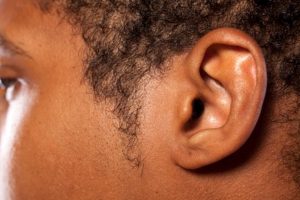
Although labyrinthitis may clear up on its own, there are natural treatments you can try to speed up the recovery.
Natural treatments for labyrinthitis
- Avoid activities that can worsen your condition, such as overconsumption of alcohol, fatigue, allergies, smoking, stress, and certain medications.
- Take an over-the-counter antihistamine.
- Get plenty of bed rest, especially during vertigo attacks.
- Do exercises to reduce vertigo. Sit at the edge of your bed and turn your head in the direction causing the vertigo. Lay back on the bed with your head still in that position. Turn your head 90 degrees to the opposite direction and hold for 30 seconds. Rotate your body to the side your head is pointing and hold for 30 seconds. Sit back up and repeat this a few times until vertigo is relieved.
- Consult with your doctor about any possible medications that can help.
- Try vestibular rehabilitation therapy, which is a physical therapy that can help you adapt to and correct your symptoms.
Other treatments for labyrinthitis include medications such as benzodiazepines, antiemetics, antibiotics, and corticosteroids.
Other home remedies to treat ear infection
While ear infections should be taken care of by a trained professional, there are home remedies you can try. It would be a good idea to speak to your doctor before trying any sort of treatment for serious infection. The following are some natural at-home remedies for adult ear infections:
Salt. Found in nearly every home, salt can be a great way to provide ear irritation relief. This can be done by heating up salt in a pan or microwave, putting the heated salt in a cloth, and sealing it in a bag. When the bag is at a comfortable temperature, put it on the affected ear for about five to 10 minutes. This is a good way to relieve pain and swelling.
Garlic. Contains anti-viral, anti-oxidizing, and antimicrobial properties that can make it effective as a home remedy for ear infections. You can crush a few garlic cloves, wrap them in a small cloth, and place it on your ear for about 30 minutes. This will provide relief from ear pain and swelling.
Warm garlic oil. Having many of the same properties as whole garlic, garlic oil can be used similarly. Put a few drops in a bowl of warm water. Place the affected ear in the bowl for about five minutes. You can also put a few drops of warm garlic oil directly into the ear, allowing it to sit inside.
Tea tree oil. Known for its effective antiseptic properties, this oil can be used to kill bacteria or viruses that infect the ear. It can be used by steam inhalation with the use of a humidifier. This can provide instant relief for the sinuses and respiratory system.
Lavender oil. Has some anti-inflammatory properties and smells great. This can be used by mixing it in a bowl of warm water. Then, using a cotton ball, soak ball with the solution and place it in your ear.
Neem oil. Contains antimicrobial properties that help fight against bacteria and soothe inflammation. It will also prevent itching and irritation.
Basil. Considered an antibacterial herb and is effective for treating ear infections. Use five to six basil leaves and crush them thoroughly to extract their juice. Apply the juice to the affected ear and pour some into the ear canal.
Mullein. This flowering plant originated from Europe and Asia. It is great for treating various medical diseases, like coughs, congestion, eczema, and bronchitis.
Onion. A common food item and one that holds many medicinal properties to help ear infections. You can pour onion juice into the infected ear or make an onion compress.
White vinegar. An acidic solution that is toxic to microorganisms that lead to ear infections. It can also help eliminate growth and reproduction of the bacteria. Place a few drops in the ear and put some on a warm compress. Place it against the ear.
When to see a doctor for labyrinthitis
You should seek immediate medical attention for your labyrinthitis if you experience mental confusion, slurred speech, double vision, weakness or numbness in one part of your body, or changes in the way you walk.
Furthermore, if your condition does not improve within three weeks, make an appointment to see your doctor. They may refer you to an otorhinolaryngologic (ear, nose, and throat doctor).